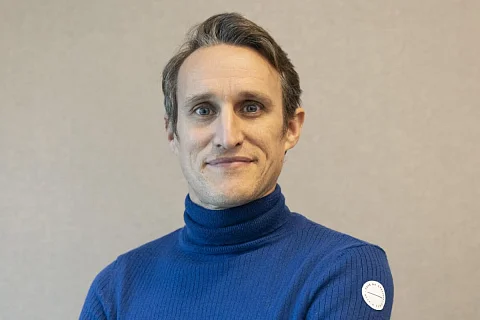New Policy Needed for a New Economy
17-01-2024
With the program, we are working towards a new economy, one that is sustainable using different raw materials and new business models. However, appropriate framework conditions are necessary for this sustainable economy. The focus in 2024 will be on Ending Waste Status and a Level Playing Field, according to program leader policy Björn Koopmans.
End of Waste
Last year, we thoroughly analyzed the end-of-waste issue and developed solutions in collaboration with stakeholders. In the coming year, we aim to work on a voluntary certification system. Such a system should help substantiate, standardize, and eventually also unify the documentation process by the involved companies. This is in anticipation of harmonized European end-of-waste criteria concerning, among other things, the recycling of plastics and is an addition to the efforts of the government, including online assessments, guidelines, and exchanges with regional environmental services regarding legal judgments.
An important principle in establishing this system is chain collaboration, at a minimum between the processor and the buyer of the 'raw material.' More specifically, we will explore in the first quarter how we can set up such a system. Essentially, there are two tracks: either one or more certifiers will voluntarily develop this to expand their service portfolio, or companies will group together and issue a tender for certifiers to develop this.
SAVE THE DATE: As part of the Moonshot PHA, we are planning an event on April 23 to discuss the establishment of a voluntary certification system.
Level Playing Field
Biobased and circular raw materials cannot yet compete with fossil raw materials, let alone with the cost-efficient installations that process them. Moreover, current climate policy drives producers of these alternatives towards their use as energy carriers. Valuable raw materials are literally being burned as a result. This, in turn, leads to a significant shortfall in the much higher quality use in the development and production of sustainable materials. The playing field between fossil and non-fossil, and between fuels and feedstock, is therefore far from level. This clearly involves a complex issue as we are in a transition period. Fossil fuels cannot be eliminated overnight and require new types of installations; the use of biofuels can also provide an impetus for the market of biobased materials.
In the coming year, we will analyze what barriers Dutch green chemistry companies are facing and how we, from GCNE, can contribute to leveling this playing field. We would therefore like to support the initiative of the government to develop a European package of measures for sustainable industrial carbon.
CALL FOR ACTION: We are seeking partners (companies, knowledge institutions, other organizations) who are willing to contribute substantively and/or financially to this dossier.
For more information, please contact Björn Koopmans.

